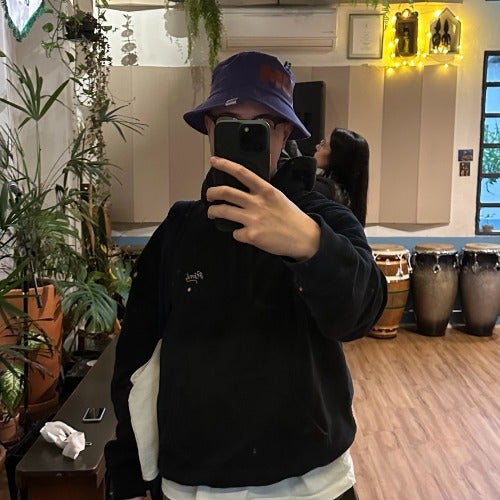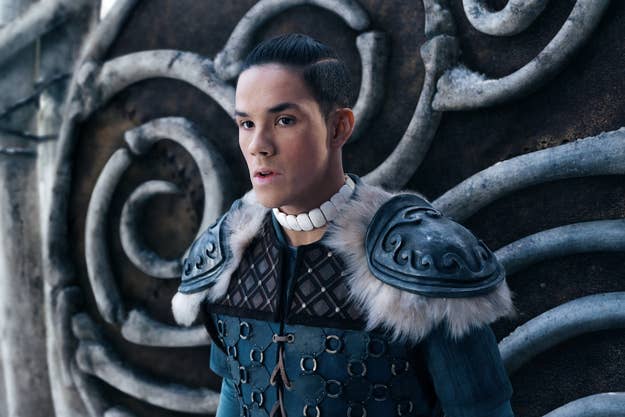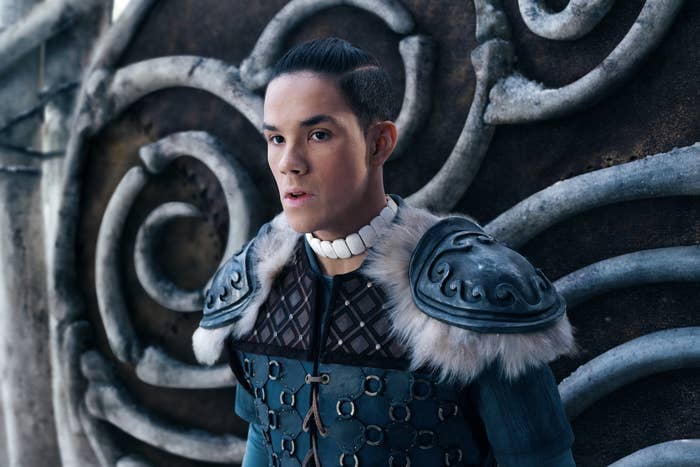
Avatar: The Last Airbender is in the pantheon of 2000s Nickelodeon shows.
Since its debut in 2005, the animated series inspired several spinoff projects and a passionate, global fanbase—one that’s been particularly protective of the franchise following M. Night Shyamalan’s disgraceful 2010 adaptation.
When it was announced that the series would be getting the live-action treatment at Netflix, fans were skeptical. Would this be another bomb, like the canceled Cowboy Bepop series? Or could it actually be something worthwhile for the franchise, like the recent adaptation of Eiichiro Oda’s One Piece?
Ian Ousley, the 21-year-old actor born in College Station, Texas, who plays Sokka in the Netflix version, knew it would be a daunting task adapting one of the most beloved animated stories of the 21st Century. But he says the cast had one common goal stepping into the project.
“We’ve got to do this thing justice,” Ousley says. “What we want is to give people a true and faithful adaptation of a show that people grew up on and still love today.”
It seems like the live-action series has resonated with fans. In its first four days in the US, it secured the No. 1 spot on Nielsen’s streaming chart and garnered nearly twice as many views as the debut of One Piece. In a sign of faith, Netflix decided to greenlight Seasons 2 and 3, ensuring the series will at least get the opportunity to tell Aang’s whole story and possibly do right by the franchise’s legacy.
Ousley sat down with Complex to reflect on the necessary changes for live-action, what he demanded to keep in the series, bonding with the cast, and much more.
(This interview has been edited in length for clarity.)
You were 19 when you signed on to the project. We're here now, two years later. How are you feeling?
IAN OUSLEY: Feeling older [Chuckles]. I feel great. We shot this project for 13 months in Vancouver. It's been almost a year and a half since VFX and all of that stuff. So it's kind of a weird situation to go from like, “Oh, you're gonna do 12 hours of work every day for 13 months.” Then it's like, “All right, here's your life for like a year and a half.”
Then it gets released and it's like, “Oh, by the way, you did this thing and it's awesome, and you're it's going to come out and it's going to be crazy.” So it's been a funny, kind of roller coaster situation.
It was also a massive world tour, from Tudum in Brazil to all across the globe. What’s it been like interacting with fans ever since you joined?
I mean, great. It is a very passionate fan base. I was part of that fan base at one point, so I really understand. Since it's been released, the fan reaction has been overwhelmingly positive from what I've seen, so I'm just really grateful that the fans like it honestly. Because I was in that same spot where I was like, “Oh my gosh, I really want this to be good.”
Everyone on the cast and the creative side of things were really fans of the project, which is rare to find, a project that everyone is so passionate about. We were like, “Okay, this has to be good because there might have been a movie at some point that maybe wasn't so good.”
We were like, “Our whole goal is: we’ve got to do this thing justice.”
"We've got to do this thing justice."
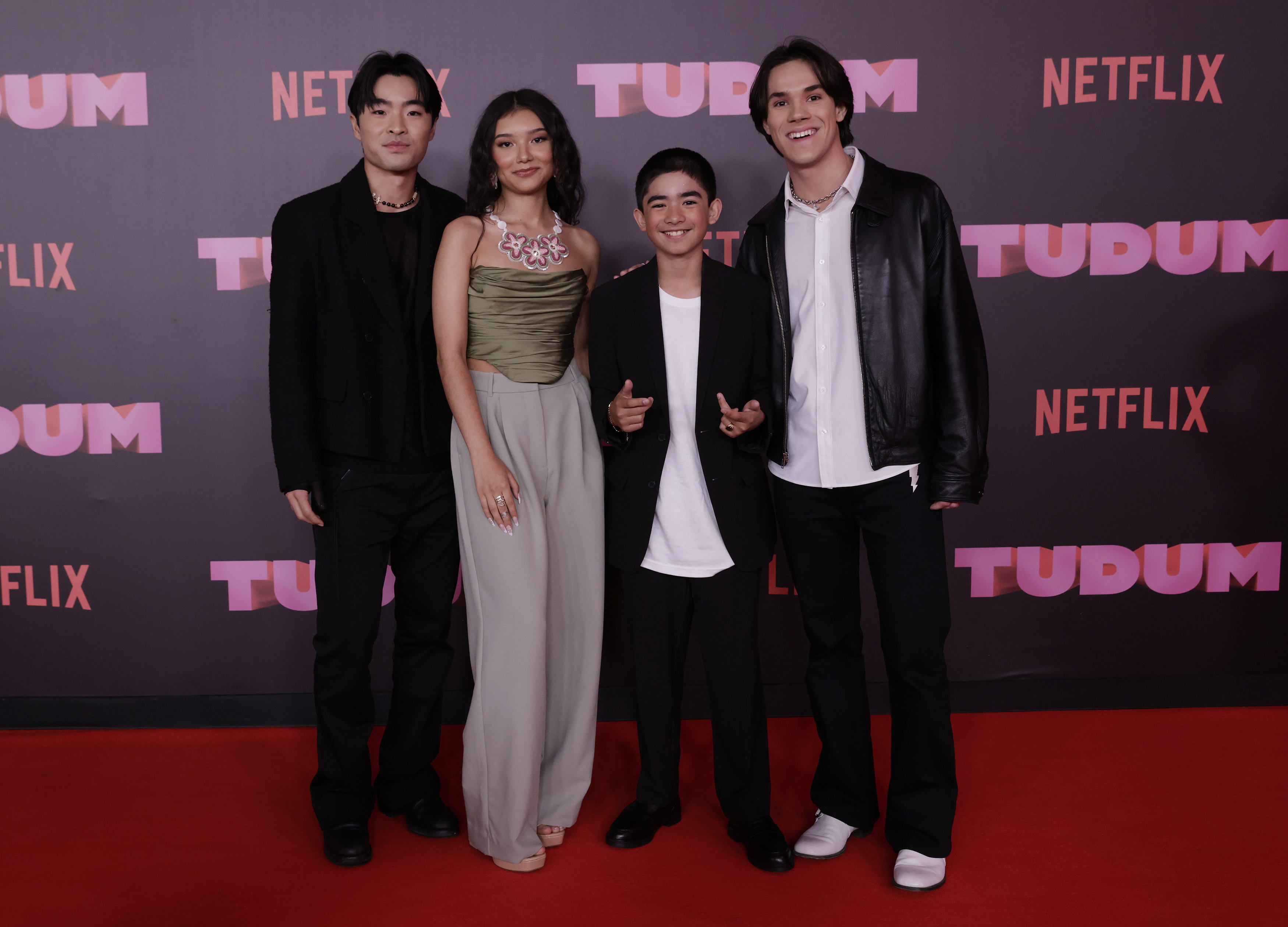
What was the casting process like? I heard it was done under cover, Ken Leung thought he was auditioning for a different franchise. How did all that go down?
It was under a code name, so I did a self tape under the code name “Tradewinds” and thought it was just some Netflix original because it said Netflix but didn't say anything else. I had no idea it was Avatar at all.
I did a bunch of Zoom callbacks, chemistry reads over Zoom, which is always funny because if you've ever been on a Zoom meeting in your life, there's that subtle delay, which is kind of awkward. So acting with that was pretty interesting.
But we were in the midst of COVID, and I got the call that I actually got the role. The first reaction was, “Oh, my God. I'm playing Sokka.” And then I was like, “Oh my God, I'm playing Sokka. What the heck?” Like, so much pressure.
Once you landed the role, how much Avatar content did you consume to prepare for the project?
To prepare, I just watched season one because I didn't want to have in my mind too much the arc of what Sokka goes through in seasons two and three. So I was religiously watching season one, like three or four times. Throughout the process of filming the show, just reminding myself of like, “Okay, we're here. Sokka is going through this.”
The animated show is basically the heart and soul of our show, but our show is different. It's live-action. Anything's going to be different when you take it from animation and put it into real people. So just trying to add those human elements into it, finding where they really didn’t get to dive into because it’s an animated series, trying to find where we could mix those human elements in.
"Anything's going to be different when you take it from animation and put it into real people."
What were you most excited to tackle with the project? Anything you were really looking forward to?
I was most excited for the stunts. Dallas [Liu, who plays Zuko] is a good friend of mine, and those were my favorite days, shadowing and getting to watch him do his martial arts in costume, which is very difficult. We're basically all in leather, so doing what he's doing is insane.
The costumes, that's what really transported us into the world. The first time I got my haircut and I'd put the costume on in the fitting and stuff, I was like, “Okay, this is really cool.” Once I had the wolf tail, it was over. I was like, “Oh my gosh. This is real.” And that's kind of where I saw it through, Not just my imagination anymore, it was like, “Oh, this is real.”
What were the action and fight scenes like for you?
Great! My job is to lose most of them [Chuckles], but it was actually a really fun experience. We did a six-week-long bootcamp where we all learned how to bend all four elements, even though I'm a non-bender. The rest of that bootcamp was focused on me re-learning my martial arts background, which isn’t very hard.
I'm a third degree black belt in taekwondo and a world champion in weapons. So that was what was fun for me because Sokka's got a lot of weapons. He's got spears, he's got his boomerang, obviously. Later on he'll master the space sword, which I'm very excited for, hopefully. I mean, that's in the animated series. We don't have any scripts yet for season two and three, but yeah, it was really fun to do those scenes.
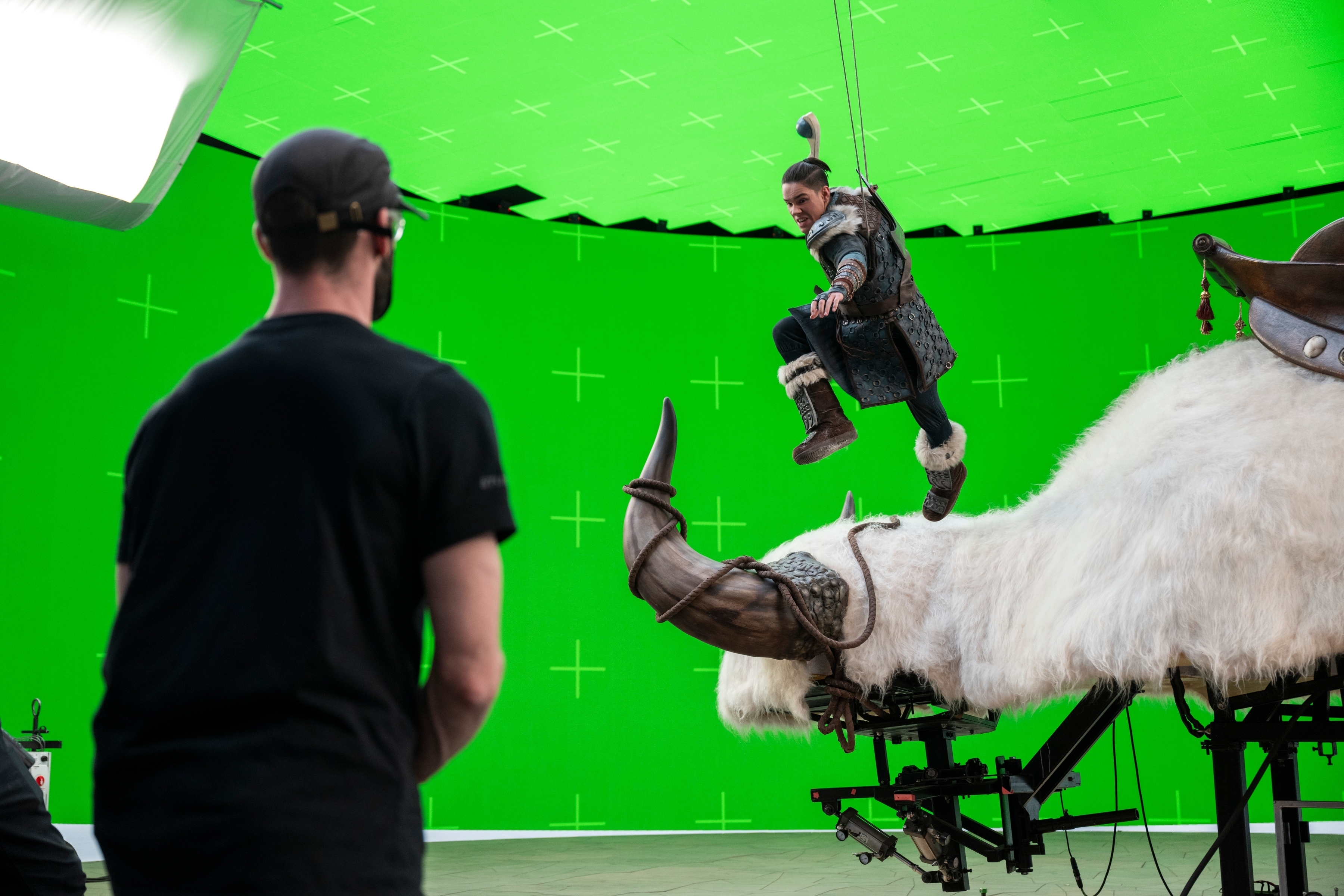
The behind-the-scenes pictures made it look like y’all were legit family, like homies. What was the bonding experience like on and off set?
I mean, hopefully me and Dallas didn't seem like actual homies in the show, but we were roommates. We actually knew each other in L.A. beforehand, when we were like 15. It's a very long story, but we really were not fans of each other at all. So when I found out he got cast, I was like, “Oh my God, this is gonna suck. My life is going to suck for a year.”
We were supposed to be friends and then we just bonded throughout the bootcamp and the first month of shooting. We lived a block away from each other and we would always get dropped off at one person's house, go eat, come back to that person's house, and then seven hours before we had to be on set for the next bootcamp day, which is very intense because it's like eight hours of training, we'd be like, “Oh, crap, I've got to go home.” Go sleep in separate places, and then do it all again the next day.
So after Christmas break, we were just like, “Dude, we've got to move in together.” So we ended up doing that, which was really cool.
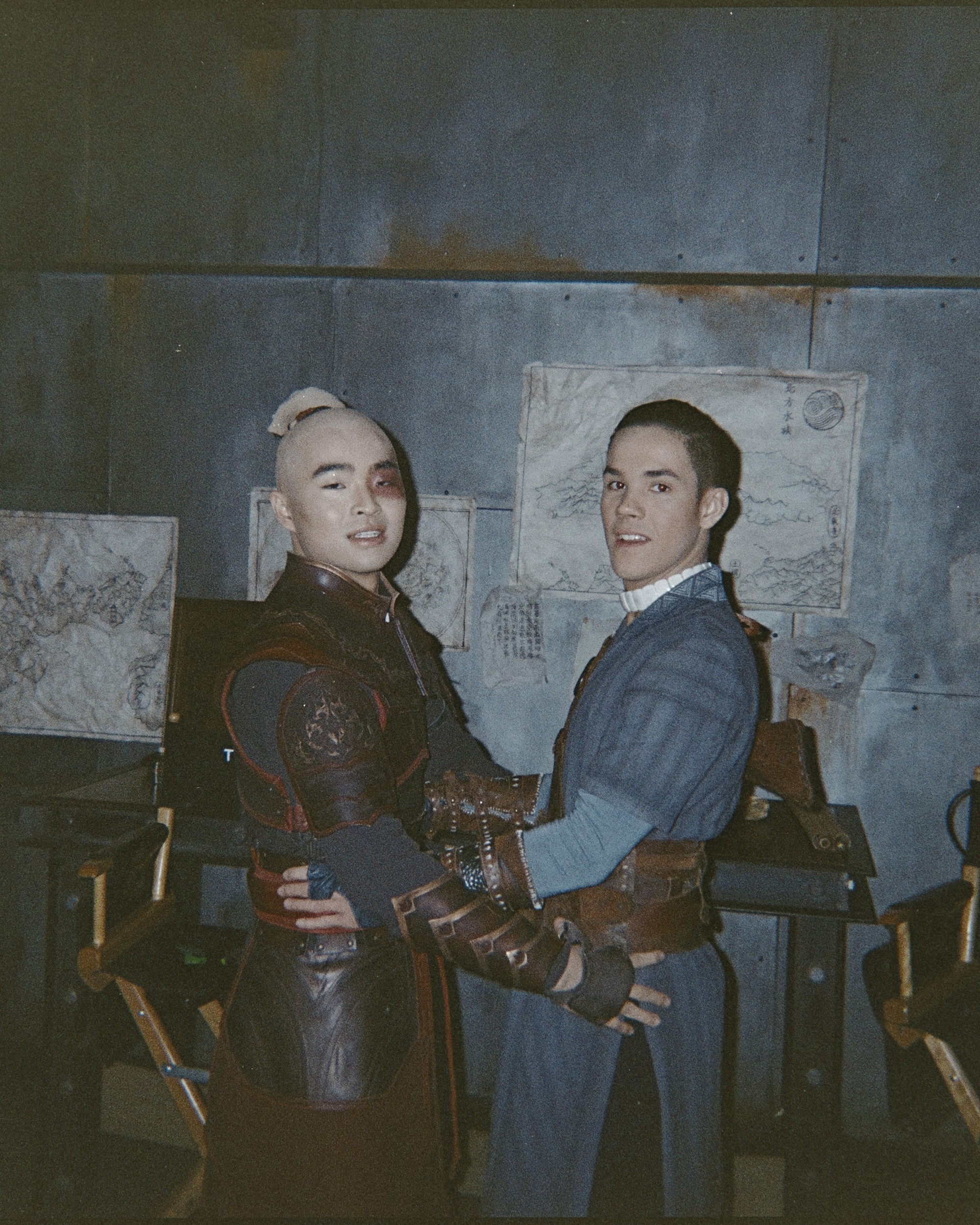
Do you guys have a group chat?
Oh, yeah. Oh, yeah.
Does it have a special nickname like “OppenHomies” or something?
You know, that sounds more like what the Oppenheimer group chat is, is that what it is? “OppenHomies”? Oh, my God. That's so lit.
We have one, it's “Shadow Wizard Money Gang.” I think there's a music producer who has that as his producing tag that was big for a while.
One day I opened my text and it said “Shadow Wizard Money Gang” with like a ton of emojis. And I was like, “What the hell?” And it was them. I was like, “Oh, cool.”
What are your cardinal rules for adapting an animated project into live action?
I think that, for one, I'll say that we love the animated show. All of us are fans of that, which is what we are trying to embody instead of emulate, is what I would say. A shot for shot remake of an animation to me personally is unnecessary. What we want is to give people a true and faithful adaptation of a show that people grew up on and still love today.
That's what I would say to some of the critics: “I hear you and we love the animated show and it exists and is perfect for a reason.” I think that it's necessary to bring some differences to the show so that we can have some new content. You have to take risks, and I think we took some risks. Sometimes that really, really pans out and sometimes it doesn’t. I think that most of our risks really did.
"I tihnk that it's necessary to bring some differences to the show."
What I’d also say to this subject in general, I know it's a little bit off topic, but I feel like the first season of the animated show is so good, but it's hopping around a lot. We're going on little side missions here and there because we're trying to get to the Northern Water Tribe, and it really finds its voice in seasons two and three.
It's like, “We know what the show is, we know what we're going after, we know what the plot points are. We have Toph now. We have the Aang Gang. We have a mission. We’ve got to save the world.” I think that our show also has that opportunity in live-action.
We've gotten so much constructive criticism, which is why we all want to make the show as good as possible. Still, not just for season one, but season two and three. I think we really have that opportunity now as well to find our voice in season two and three.
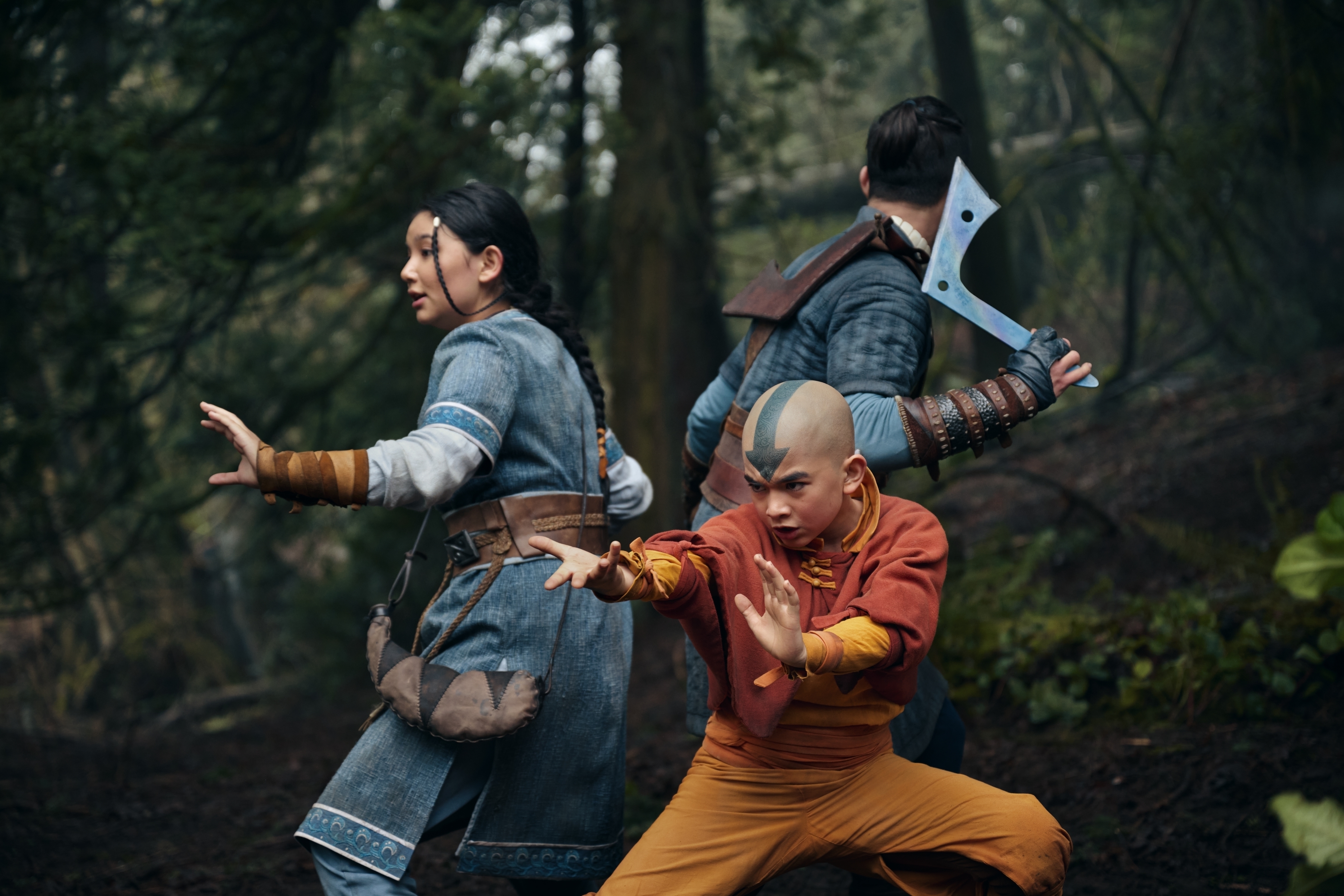
Was there anything that you felt particularly strong about that you felt Sokka needed to keep in the live-action?
One thing that I asked to keep that was almost not there was I'm wearing the Kyoshi armor in episode two. Originally I wasn't wearing the Kyoshi armor. In the animated show, it's kind of seen as a punch line. It's a punishment, like, “Here, throw this on if you want to train with us.”
For me, I went to the people that wanted to make that change and was like, “You know, I'm a martial artist. If I'm going to a jiu jitsu gym, I'm going to wear their uniform. It can be seen as a sign of honor and respect.” I think that's totally what it is.
So I was really happy that I got to keep that. It really was not anything intense, but it was just advocating for your characters. Always. Everyone always loves that because no one had ego on our set, which is something that's so important when trying to create something that's good is like, “Oh, I'm totally down to be wrong.”
What are your hopes for deepening your portrayal of Sokka? Anything you are excited to explore in Seasons 2 and 3?
I think that he evolves through his sense of responsibility. He evolves through his relationship with his sister a lot. The reason this question is hard to answer is because I don't have scripts yet, which helps me guide where that growth will come from. I'm kind of a psycho about trying to make the performance not one noted, even in one episode or one part of a season.
I had a whole serial killer wall, theories of all like, okay, “This season he's going through this. And then the reason it changes here is because…” and then once you do all of that work, you can throw it all away once you get on set and you kind of have a sense of purpose of why.
So I think I'm going to find out more of those specifics, I will find out more about that when I get those scripts. Hopefully soon.
